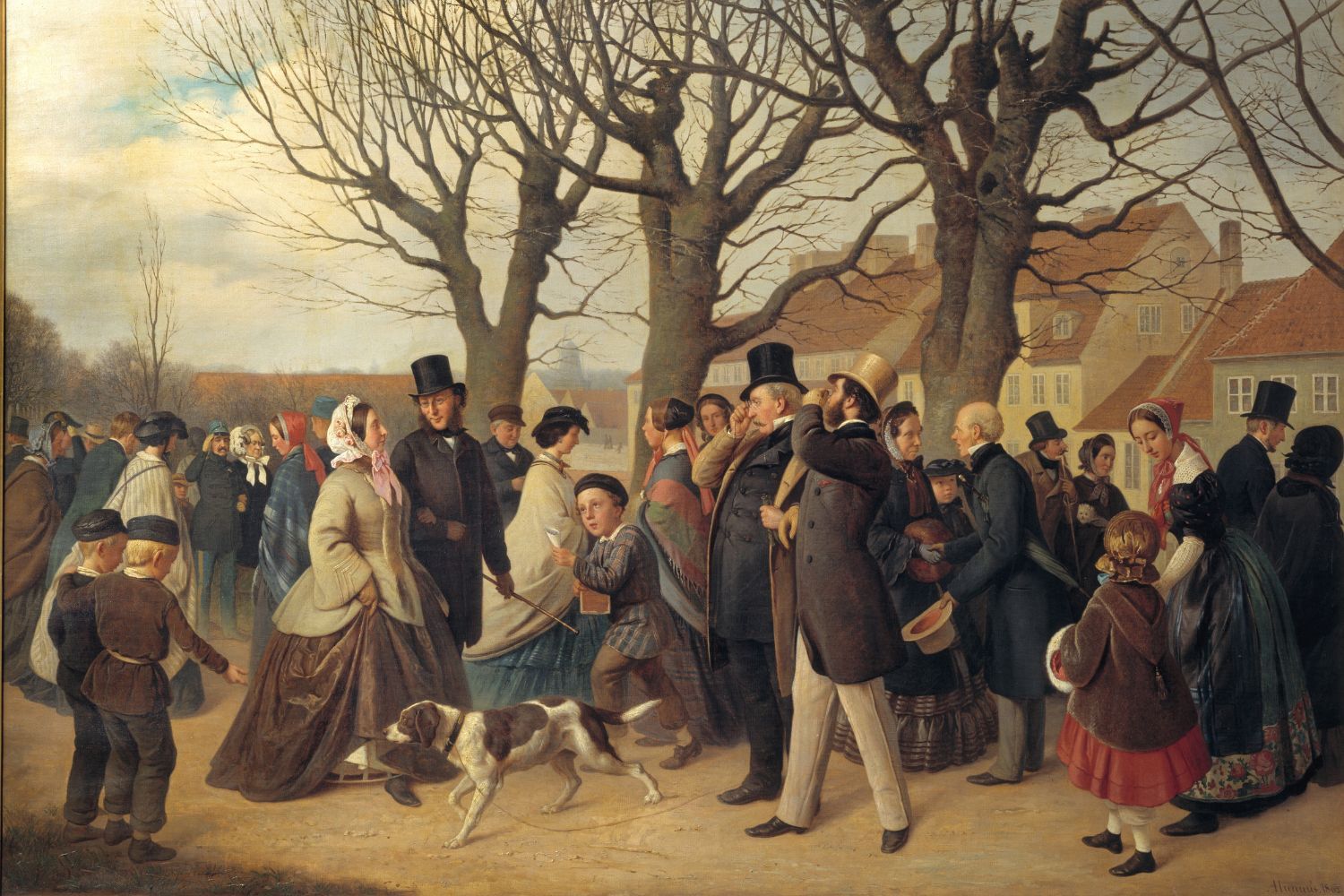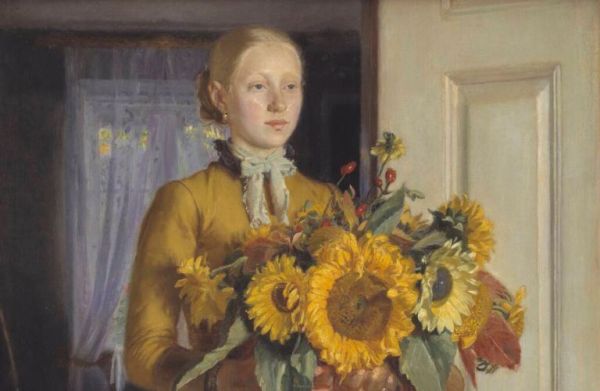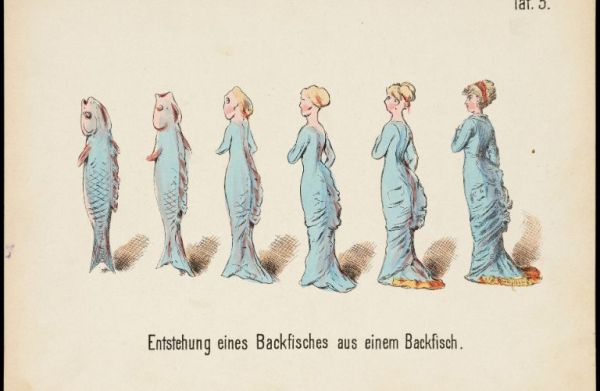
Introduction
The common European data space for cultural heritage is a flagship initiative of the European Union to accelerate the digital transformation of Europe's cultural sector. Together with 13 other sectoral and interoperable data spaces, it is central to Europe’s ambition for a thriving data-driven society - and in the second year of its deployment, its potential becomes ever clearer. In 2024, we at the Europeana Foundation are excited to deliver the opportunities that the data space offers and to ensure that it thrives for the benefit of everyone - professionals and public alike - across Europe.
This year, we have ambitious plans to strengthen our efforts to build a sovereign, reliable and open data space and lead innovation in infrastructure and technology. 3D and AI technologies will play an important role, and we are thrilled to work on scaling-up of 3D digitisation in our sector by building on the results of the Twin it! 3D for Europe’s culture campaign. Also in focus will be inspiring our audiences to engage with and reuse Europe’s shared cultural heritage in new and exciting ways; working closely with our audiences and partners across Member States will be a key way to achieve this.
With the data space, we’ve entered into a new chapter of our history, building upon the accomplishments of the past 15 years. While we’ve made great progress in the first year, we also recognise the challenging wider context in which we operate, as a stark climate emergency and harrowing global conflicts threaten citizens and our colleagues around the world. We stand in solidarity with those affected and are committed to taking actions to support them (for example, through our Climate Action Community, Supporting the digital cultural heritage of Ukraine Working Group and the Laptops for Ukraine Initiative).
As a values- and mission-driven organisation, and with the data space as our means, we believe digital cultural heritage has a significant role to play in addressing these issues. Europe has expressed its bold ambition to master the current digital, environmental and social system-wide changes in a concerted way: a wholesome ‘Triple transformation’, and we are firm in our belief and commitment to a green and socially responsible digital transformation of our sector.
The world we're building
In line with our ambitions to advance a heritage-led triple transformation of Europe, we aim to build a data space - and world - with collaboration and participation at its heart, that takes the lead in being diverse, inclusive and climate conscious.

Collaborative
The data space will encompass many different actors for reciprocal benefit, as we collaborate across our sector and beyond to build a data space that is jointly owned.

Diverse and inclusive
We are cultivating an inclusive, diverse and equitable data space - from making our offer accessible to all, to upholding an inclusive and transparent governance and reflecting data, stories and events from communities across Europe.

Participatory
We are working to ensure that everyone can access, participate in and benefit from the data space. As a data space for the public good, our main goal is to serve people and communities.

Climate conscious
We are guided by our Climate Action Manifesto and Community to make greener and more sustainable choices. We’re conscious of the impact of digital transformation on our planet and we take measures to mitigate it.
Collaboration is not only a value, but a key approach for the world we are building. As part of a consortium of 19 partners and in close cooperation with the Europeana Network Association and the Europeana Aggregators’ Forum, our work and our ambitions for the data space depend on our close and fruitful relationships with experts across our sector and in Member States, as well as with the European Commission.
As we strive to become a stronger, more sustainable and impactful organisation, we will encourage more talented and committed professionals from diverse disciplines to join our Supervisory and Advisory Boards. The expertise, knowledge and collective strength of our governing bodies are essential for the success of our organisation.
Projects for digital cultural heritage
We are proud to participate in EU-funded projects that mobilise cutting-edge technologies in a socially responsible way and help develop inclusive and greener practices in our sector. In 2024, we will continue to work on projects that enrich and enhance the data space, as we work with our partners to deploy it.
EUreka3D, AI4Culture, 5Dculture and DE-BIAS are all data space-supporting projects funded by the Digital Europe programme. They facilitate the digital transformation and capacity building of our sector within the data space, focusing in particular on the potential of 3D and AI technologies.
DIGICHer, funded by Horizon Europe, supports the digitisation of the cultural heritage of minority communities for equity and renewed engagement.
The European Heritage Hub is an EU funded pilot project bringing together heritage stakeholders and initiatives across Europe to support the transition towards a more sustainable, digital and inclusive society.
Watching Videos Like a Historian, funded by Erasmus+, will equip European educators with the tools to teach media literacy and critical thinking skills through audiovisual resources.
We will also work to strengthen cooperation and alignment between the data space for cultural heritage and other data spaces, and will continue building meaningful connections with the rest of the heritage ecosystem including with relevant culture and heritage actors such as the EIT Culture & Creativity, the future European Collaborative Cloud for Cultural Heritage and the European Open Science Cloud.
What we're working on in 2024
2024 will see us build on the achievements of the first year of the data space alongside renewed focus on seven key areas.
A sovereign, resilient and open data space
We want the common European data space for cultural heritage to make available data which is interoperable, manageable and reliable. In 2024, we will develop our approach towards assigning persistent identifiers (unique and long-lasting references to digital entities) to data, review and extend our data governance mechanisms, and work to bring more and higher quality data into the data space. At the heart of these efforts, we want to embed the principle of sovereignty, ensuring that data owners - as opposed to platforms - keep control of their data and what can be done with it. In practice, this will see us explore the decentralisation of our aggregation models and roles in the data space through an Innovative Operating Models Working Group. We will work closely with the Data Space Service Support Centre to ensure that our data space is interoperable with other data spaces.
A compelling data space brand
In the coming years, the common European data space for cultural heritage will grow to encompass new actors, services and kinds of data. This will make the data space a more meaningful and interesting place for those using it and those contributing to it. We need to ensure that they are aware of the opportunities the data space holds through the continued development of the data space brand. We will release a new webpage to present the benefits and opportunities of the data space, foster participation and understanding , and in time, promote related developments and activities. We will also position the potential of the data space to actors, stakeholders and professionals in the sector through our events programme and annual conference.
Innovative approaches to infrastructure and technology
From establishing mechanisms to ensure our platforms are continuously reliable and available, to improving the technical foundations of multilingual search, to incorporating AI technologies, in 2024 our activities will ensure that the data space leads with technical innovation and is built upon a robust and reliable infrastructure. We will work to make data sharing easy and rewarding for cultural heritage institutions by further developing and extending the Metis Sandbox, its API and its different data quality reporting features. And we will develop training to build the capacity of our professional audiences to use these valuable tools.
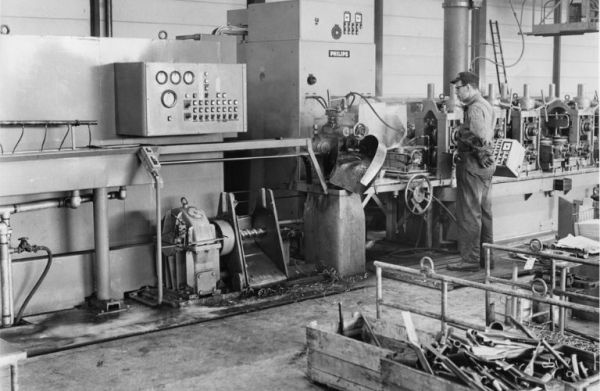
- Title:
- Wirsbo Bruk AB. Philips svensktillverkade induktionsgenerator på 250 kw uteffekt.
- Creator:
- Svenska AB Philips
- Date:
- 1967-01-01
- Institution:
- Tekniska museet
- Country:
- Sweden
- Copyright:
- Public Domain
Bringing our shared cultural heritage to life
In 2024, we will continue to support our audiences to access and reuse cultural heritage items from across Europe. Participatory initiatives like GIF IT UP and the Digital Storytelling Festival will encourage culture lovers and professionals to reuse digitised cultural heritage in creative ways, while also promoting open access. New website features, including improved browse and media experiences, will help audiences to explore content on the Europeana website. And innovative editorial will promote Europe’s shared cultural heritage to audiences across the world, with new approaches for engaging our network to contribute more multilingual content. We will also extend and diversify user engagement activities in education and research and explore XR/VR opportunities, for example, as part of the Built with Bits initiative.

- Title:
- Woman at the Virginal
- Date:
- 1630 - 1640
- Institution:
- Rijksmuseum
- Country:
- Netherlands
- Copyright:
- Public Domain
Information when - and where - our audiences need it
As the data space - and its offer - expands, we will ensure that it remains easy for our audiences to navigate our products and services. We will take a strategic approach to content across our platforms to help audiences to access the information they need where they expect it. We will work with the Europeana Aggregators’ Forum to promote our offer to inactive and new data partners, and support a rewarding onboarding experience for new institutions. On the Europeana website, updated feedback mechanisms will give audiences the opportunity to easily tell us how we can improve their journeys and experiences.
Experiments and developments in 3D
Making more digital cultural heritage data available in 3D will be a focus across all of our work areas in 2024. Through a 3D Working Group, we will continue to support aggregators and cultural heritage institutions to publish 3D content in the data space, and improve the documentation around these activities. We will review our frameworks to ensure that they better reflect 3D activity and are equipped to cover new activities around 3D digitisation. The Twin it! 3D for Europe’s culture campaign is mobilising all EU Member States to submit at least one 3D digitised heritage asset to the data space by the end of the campaign in 2024, and its final event under the Belgian Presidency will showcase the achievements of the campaign and further encourage the scaling-up of 3D digitisation beyond Twin it!. In 2024, we plan to use the lessons from Twin it! to keep the momentum going and make sure its impact lasts.
Working with - and for - our Member States
To achieve a thriving data space, the active engagement and continued support of the Member States is crucial. We will develop an engagement strategy to nurture our relationships with the Member States, and will work closely with the incoming Belgian and Hungarian Presidencies of the Council of the EU. In particular, we will support Member States’ advancement towards the targets set out in the European Commission’s Recommendation of 2021 for 3D content in the data space, building on the opportunities and learnings offered by Twin it!. We will also amplify our impact at national level through new country groups, coordinated by the Europeana Initiative and piloted by colleagues in Bulgaria, Slovenia and Italy.
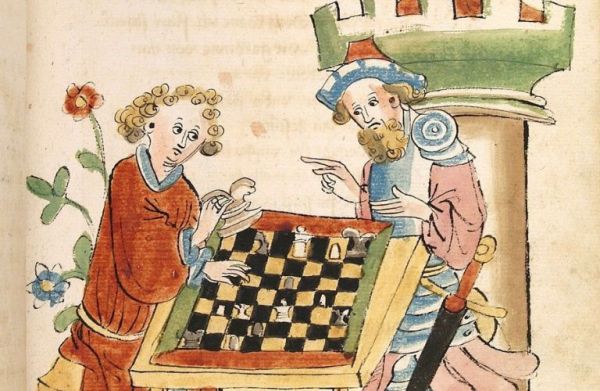
- Title:
- Flore und der Turmwächter beim Schachspiel
- Date:
- 442 - 1444
- Institution:
- Universitätsbibliothek Heidelberg
- Country:
- Germany
- Copyright:
- Public Domain
- Europeana_Foundation_Budget_2024.pdfDOWNLOAD - Europeana_Professional/Publications/Europeana_Foundation_Budget_2024.pdf
